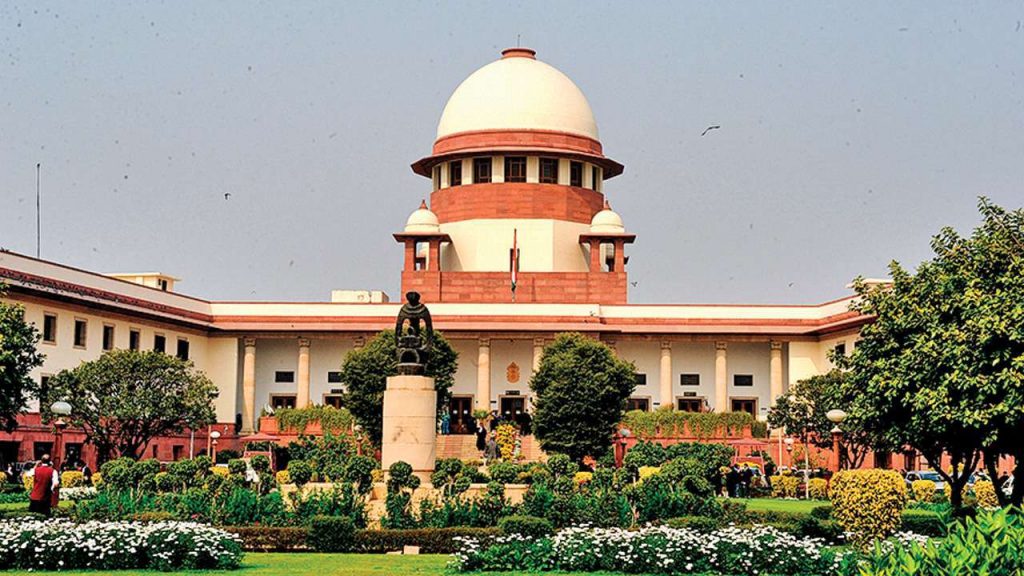New Delhi: The Supreme Court Monday said that it will on March 17 pleas dealing with two separate issues of alleged “fraudulent conversions” and challenge to various state laws on religious conversions due to interfaith marriages respectively.
A bench headed by Chief Justice DY Chandrachud was urged by lawyer Ashwini Upadhyay, who has filed a PIL in his personal capacity, that his plea against fraudulent religious conversions was distinct from the batch of petitions which are challenging the validity of various state laws on religious conversions.
“I am neither supporting the state laws nor opposing them. My petition deals with separate issue of fraudulent religious conversions,” the lawyer told the bench which also comprised Justices PS Narasimha and JB Pardiwala.
Upadhyay sought hearing on his PIL separately.
“All the petitions are before us March 17, 2023,” the CJI said and for the time being, ruled out the possibility of a separate hearing on the PIL.
The PIL has sought direction to the Centre and states to take tough steps to control fraudulent religious conversions.
Various petitions, including the one filed by Jamiat Ulama-e-Hind, were filed challenging the validity of various state laws on anti-conversion.
The Muslim body also seeks transfer of 21 cases to the top court that have challenged state laws regulating religious conversions due to interfaith marriages.
February 3, the top court had sought the responses of the Centre and six states on a plea moved by the Muslim body, seeking a transfer of 21 cases that have challenged state laws regulating religious conversions.
The Muslim body has sought a transfer of three petitions pending in the Gujarat High Court, five in the Allahabad High Court, three in the Himachal Pradesh High Court, three in the Jharkhand High Court, six in the Madhya Pradesh High Court and one petition in the Karnataka High Court, which have challenged the respective state laws.
Besides, two separate petitions have been filed by Gujarat and Madhya Pradesh, challenging the interim orders of the respective high courts that stayed certain provisions of the state laws on conversion.
The Uttar Pradesh law relates to not only interfaith marriages but all religious conversions and lays down elaborate procedures for anyone who wishes to convert to another religion.
The Uttarakhand law entails a two-year jail term for those found guilty of religious conversion through “force or allurement”. The allurement can be in the form of cash, employment or material benefits.
PTI
